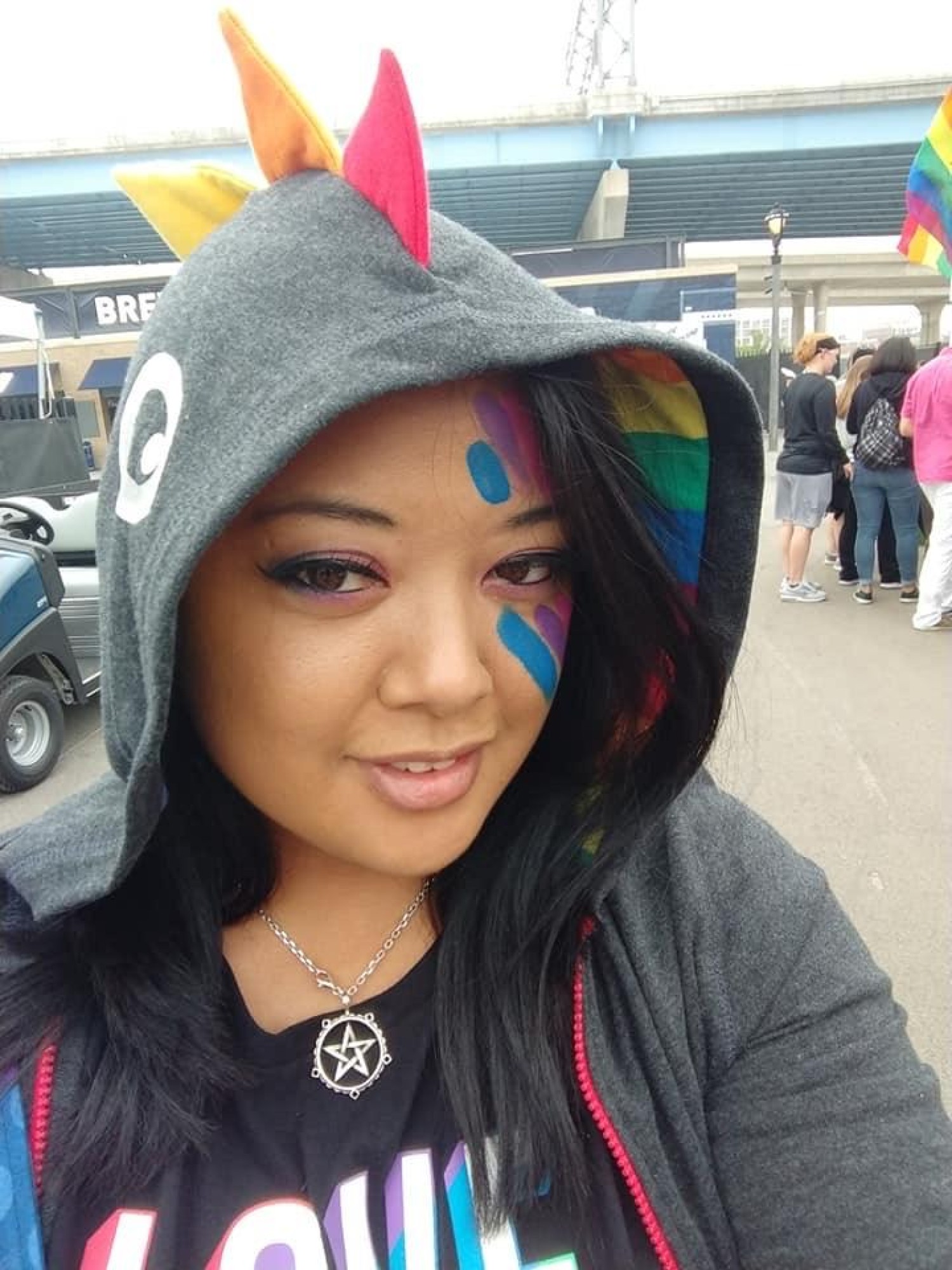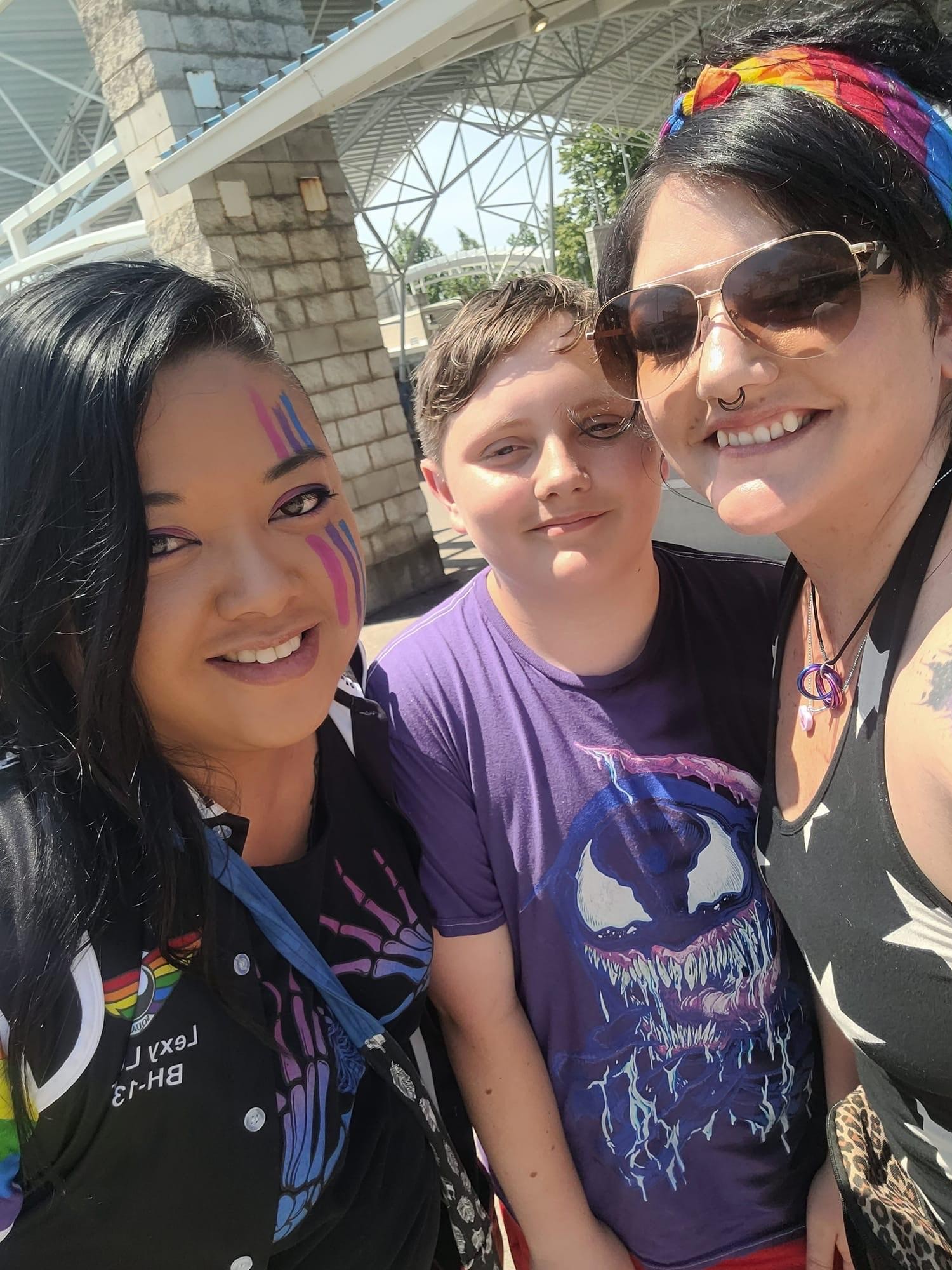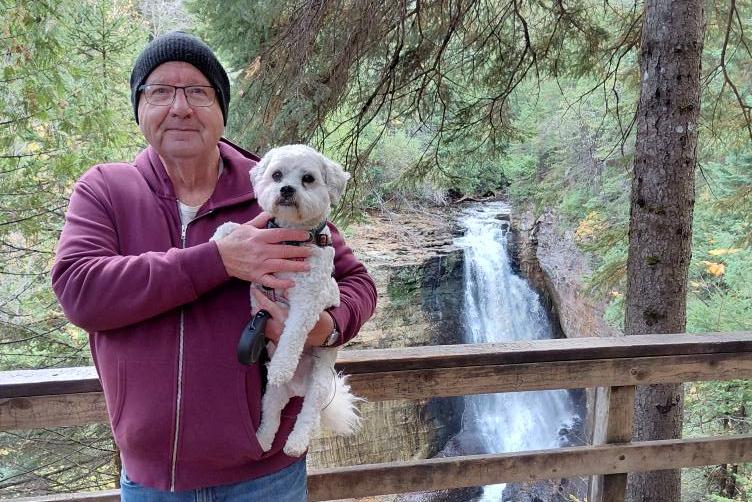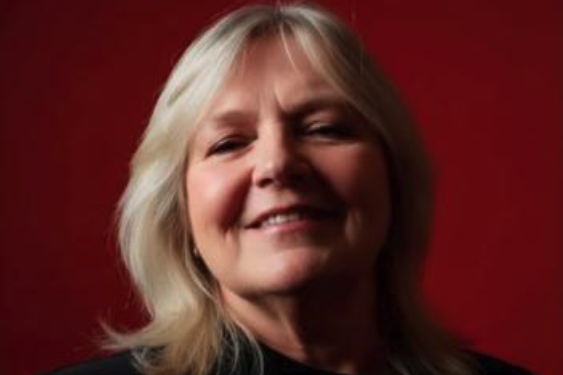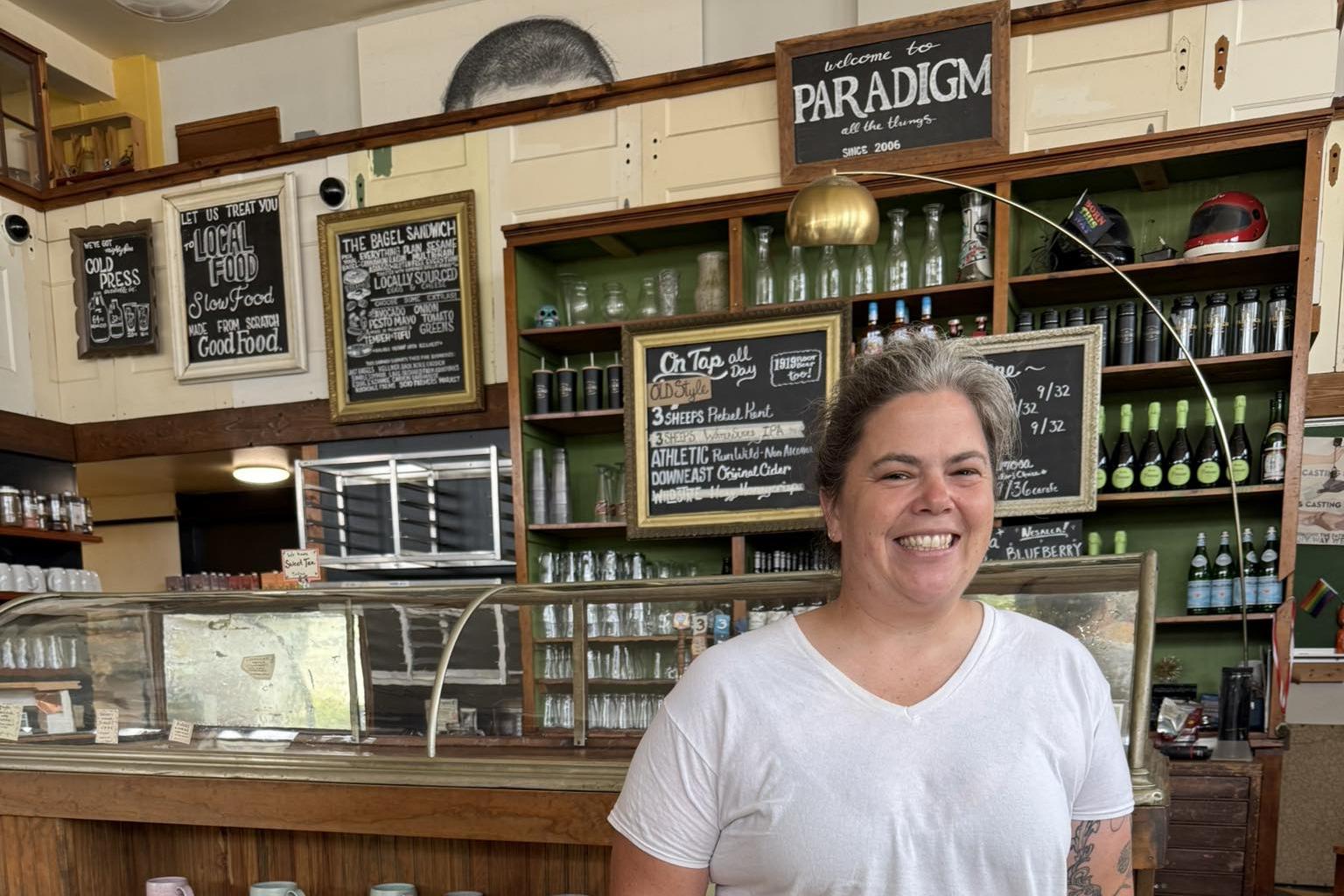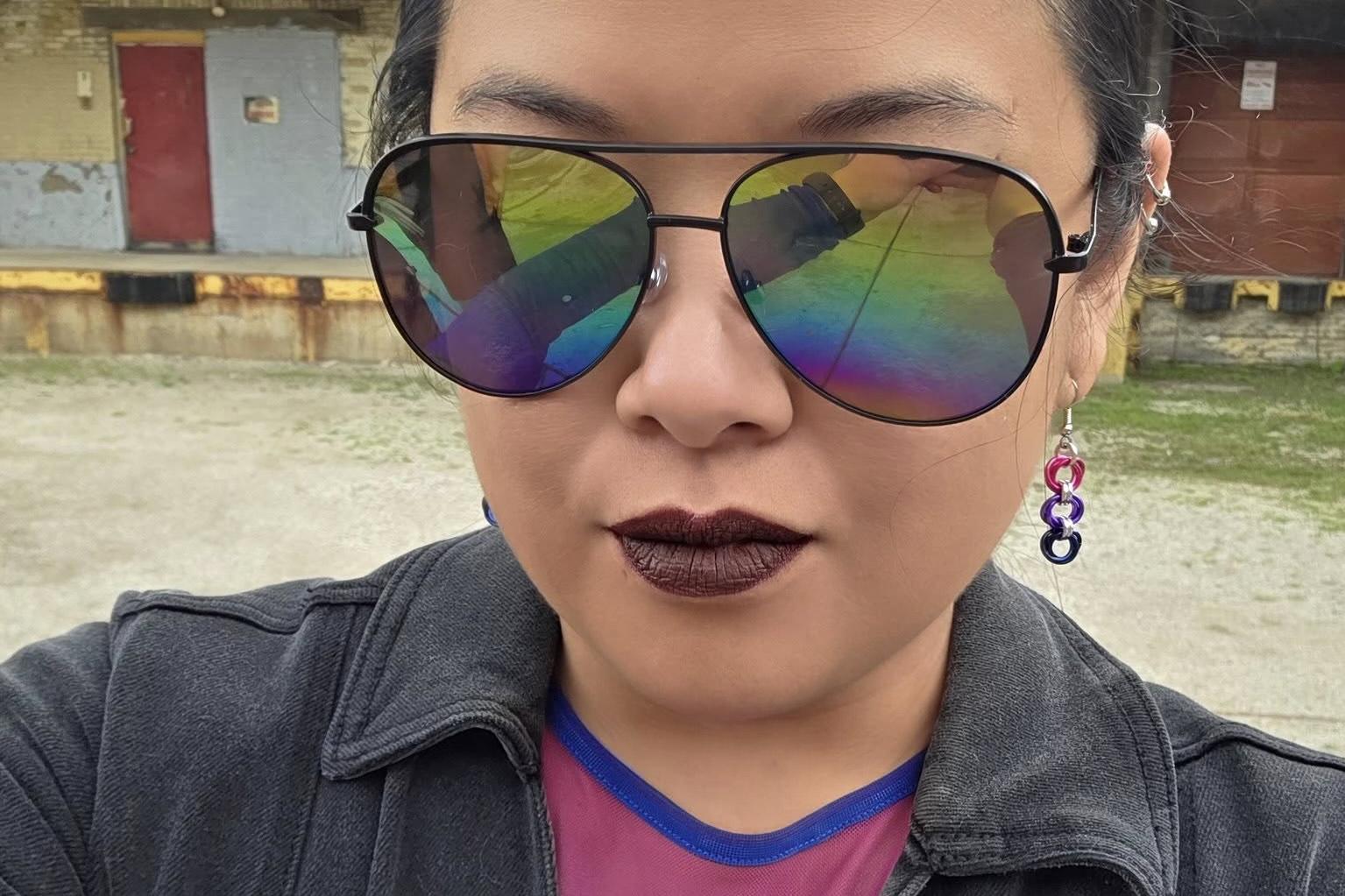
Lexy Lunger: self-acceptance is a superpower

"You are queer enough, bi enough, pan enough, non-monosexual enough... and your queerness is your superpower."
Lexy Lunger is a Milwaukee metro transplant. She arrived in Wisconsin around a decade ago and declares that Wisconsin has become home in ways she could never have anticipated. Lexy and her spouse made a move to Southeastern Wisconsin in search of change. It is here that Lexy has expanded her queer universe, here that she found a career path that not only serves but nurtures her and here that she sees a future of purpose and pride.
“Wisconsin has become home in a way I had never anticipated. I am really grateful that I ended up here.”
The geographical journey to the Midwest also included an emotional, social and intellectual path. Shortly after arriving in Milwaukee Lexy found a connection with Bi+ Pride Milwaukee. She has been an active participant and volunteer with the organization since 2018. Lexy found acceptance for her full identity within the group. In time, an educational vista also opened to her as she pursued her degree in Social Work.
Another myth that took a heavy toll was that of the bisexual slut.
“Don’t get me wrong. I am currently in a monogamous marriage, but my heart is polyamorous. I have a really big capacity for love and affection.”
Lexy looks back and can see she held herself in judgment for far too long. In retrospect, she would love the opportunity to step back to hold space and grace for a younger Lexy who was ashamed of who she was. Lexy holds out hope that younger bisexual folks can see themselves more clearly and have better societal messaging for their identity.
Lexy also lamented the bi-antagonism, or negativity, she sometimes sees from the larger queer community.
“I can’t say I see it often, but when I do, it stings and even more so because it is coming from a community I belong to, a community I fight for.”
Going on to explain, she says that it seems to be an idea that bisexual people are ‘less than’ or not ‘queer enough’ to truly belong. Bisexuals are valid members of the LGBTQIA2S+ community and should be embraced as such.
One of Lexy’s joys is the work she is privileged to do in the community as a sexual assault advocate for HIR Wellness Institute, a nonprofit organization that provides cost free mental health services for Indigenous and historically underserved communities, victims of crime, and survivors of violence.
“As an advocate, I stand up for the dignity and rights of all of our relatives, including the entirety of our Qqueer community. So, hearing that myself and folks like me [bisexuals] are barely qualified to be a part of the community, well, that hurts.”
When asked about the positives of being an out and proud bisexual person, Lexy has much to say.
“In growing up and in all the learning, and unlearning, I have done and continue to do I’ve found that being bisexual is one of my favorite things about myself. My existence is resistance, and that’s lovely.”
Lexy shares a personal story that expresses the expansiveness her bisexuality has gifted her with when she speaks of one of the deepest loves she has been blessed with. The relationship was with her late fiancé. When they began dating her fiancé identified as a bi man, but over the course of the relationship, she grew into a realization of her identity as a trans woman. It was at that time Lexy’s bisexuality, and deep love, became her superpower because Lexy was able to love and appreciate her fiancé and hold space for her as she navigated her identity and her femininity. Sadly, Lexy lost her fiancé to suicide.
“I was privileged that my bisexuality gifted me time with this beautiful human, and it is a gift I will always treasure.”
At a time when government policies are impacting the queer, and especially the trans community, Lexy holds many concerns about the hateful targeting of our trans siblings.
When asked how the bi+ community could be more visible and impactful, Lexy mentions her volunteer work with Bi+ Pride Milwaukee (BPM). Having made contact with BPM shortly after her move to Wisconsin, she credits the organization with uplifting and supporting bisexual/pansexual/polysexual/non monosexual people in the Milwaukee metro area. She encourages bis and their partners and allies to seek out the many events BPM creates and get engaged with a very beautiful, fun, vibrant bunch.
“I hope that the message received (from BPM) is that you are queer enough, bi enough, pan enough, non-monosexual enough, and that your queerness is your superpower. Join us, find other super-queeros. I think the most impactful thing you can do is show up.”
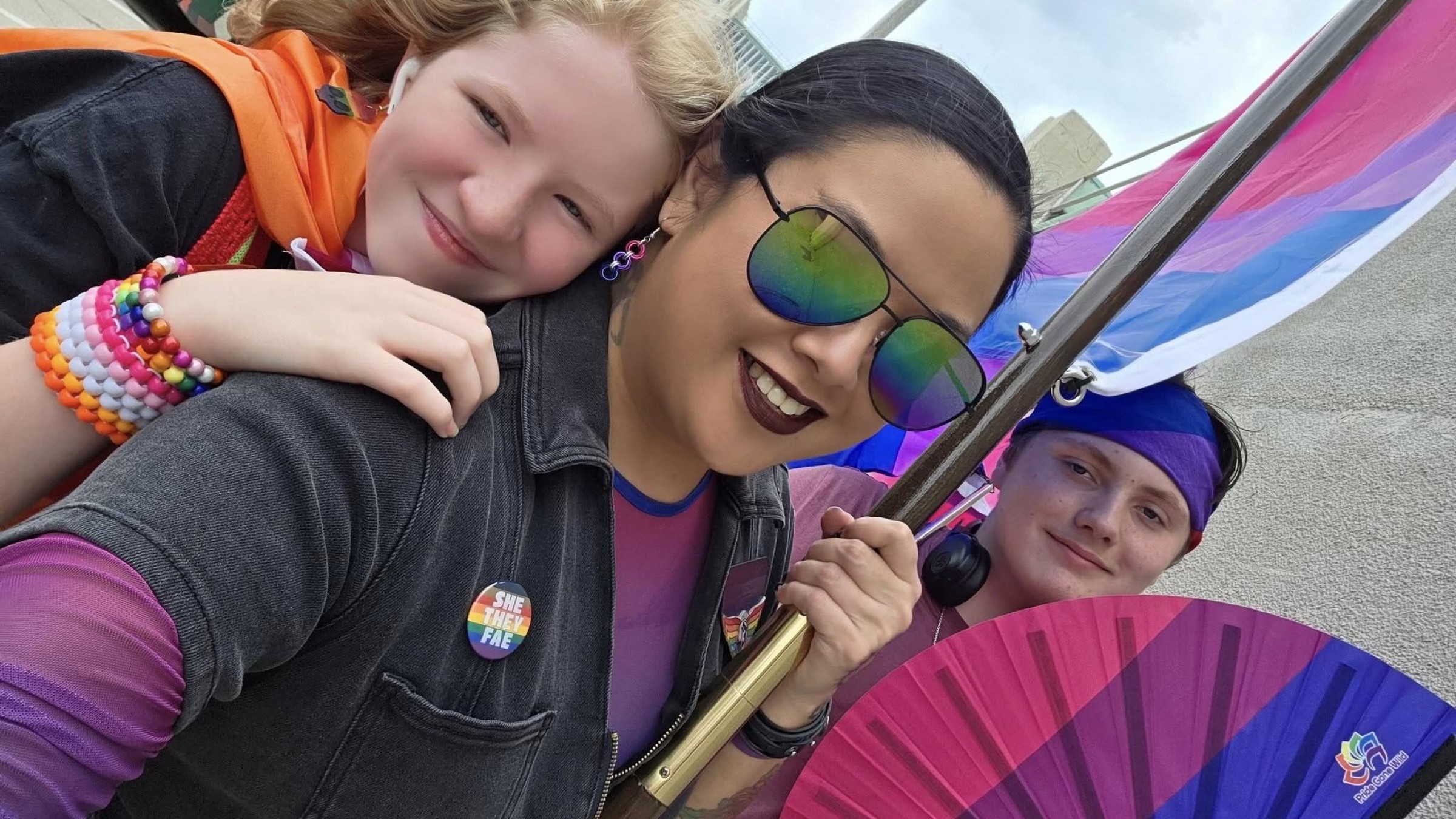 Lexy Lunger
Lexy Lunger
Lexy is a social work student who just recently graduated with her Bachelor’s degree from the University of Wisconsin-Milwaukee. She is now pursuing her master’s degree. She has been able to participate in cutting-edge research as a student social worker to stem the knowledge gap that has been systemically ignoring trans women and the societal violence they face every day.
Lexy also works for HIR Wellness Institute, supporting survivors of violence.
“I’ve gotten to be a provider of solace, mental health support, and social emotional support for survivors of sexual violence and historical trauma.”
As a sexual violence survivor herself, Lexy knows how important the work is at HIR Wellness Institute. Her work supports her personal and professional life as she learns new ways to center and ground community as part of healing, and identity as part of that healing. HIR Wellness Institute centers cultural belonging, including queer culture, in healing journeys in a powerful way. She credits HIR Wellness’ CEO and founder, Lea Denny, as someone who has transformed mental health care delivery and accessibility for Indigenous and marginalized community members and who has done a lot of thoughtful, intentional work creating a culture of support for providers as they support survivors.
This is a professional journey that Lexy calls truly transformational. She treasures working with her relatives, as HIR Wellness Institute calls their clients, and says the past year of employment with HIR Wellness Institute has been truly incredible.
When asked about concerns for the future, Lexy says it is impossible to ignore the rise of fascism in the United States. She shares that this historical time in the US feels truly crushing for many in marginalized communities, including those people she works with every day. Lexy sees strengthening communities as essential, especially those who inhabit an LGBTQ space. She encourages everyone to stand together to face the rise of fascism. While expressing concern about the current political climate, Lexy does not feel defeated. She sees community as bedrock and says that standing together will defeat the authoritarian fascism we face right now.
“I believe 100% that fascism will not prevail. Authoritarianism will not prevail. The hate will not prevail. I believe that truth and I see good things in the future for the queer community.”
One such thing is the evolution of language. The shifts in language around queerness move at a fast speed and Lexy absolutely loves it. She cannot wait to see how further nuances of understanding evolve about queer identity and gender identity. She credits language for helping her more accurately identify her own gender. While she still identifies with the spectrum of womanhood she identifies as gender-flexible and uses she/they/fae as affirming pronouns.
Another very vital aspect of Lexy’s identity is her ancestry as a Uchinanchu (also sometimes referred to as Okinawan) and Japanese person. She is a descendant of the people of the Ryukyu Island chain. She sees this as intersecting with her bisexuality.
“I love being a queer, brown girl,” Lexy says with pride.
Lexy laments that both of her identities are far too often erased, and that she unfortunately finds herself treated as “an honorary” straight and white person, especially in academic spaces. While that can be a challenge, she also notes that one of her favorite things about her current workplace is that her queerness, her brownness are honored and seen as a strength for being a mental health provider instead of being backburnered.
Working in a space that considers all of her facets has been very affirming. Lexy truly cherishes her identities, lives them in her everyday work, and seeks to support everyone in marginalized communities in both her personal and professional life.
And, she is just getting started.
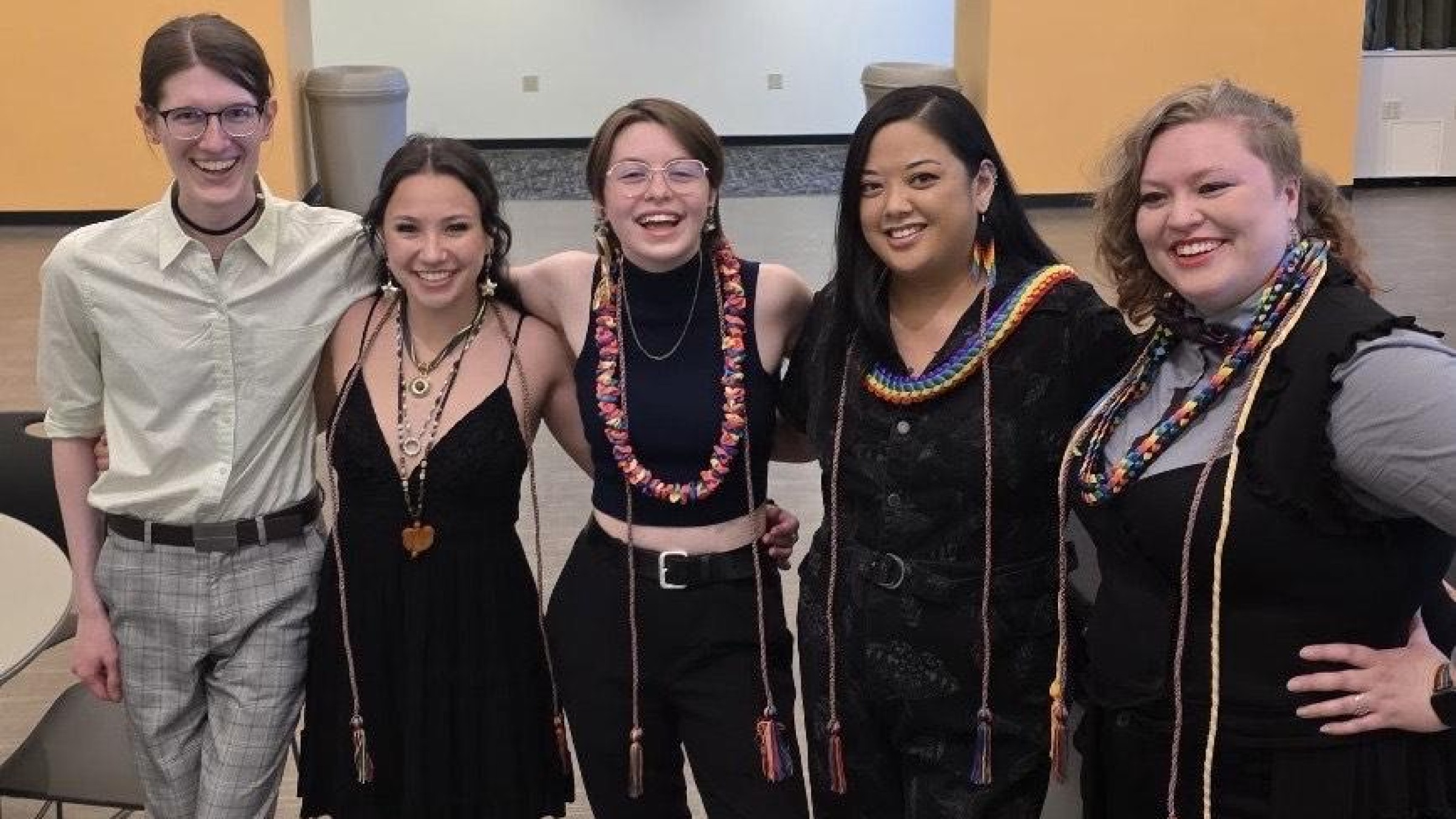 Lexy Lunger
Lexy Lunger
recent blog posts
January 17, 2026 | Garth Zimmermann
January 16, 2026 | Michail Takach
January 10, 2026 | Michail Takach
The concept for this web site was envisioned by Don Schwamb in 2003, and over the next 15 years, he was the sole researcher, programmer and primary contributor, bearing all costs for hosting the web site personally.
